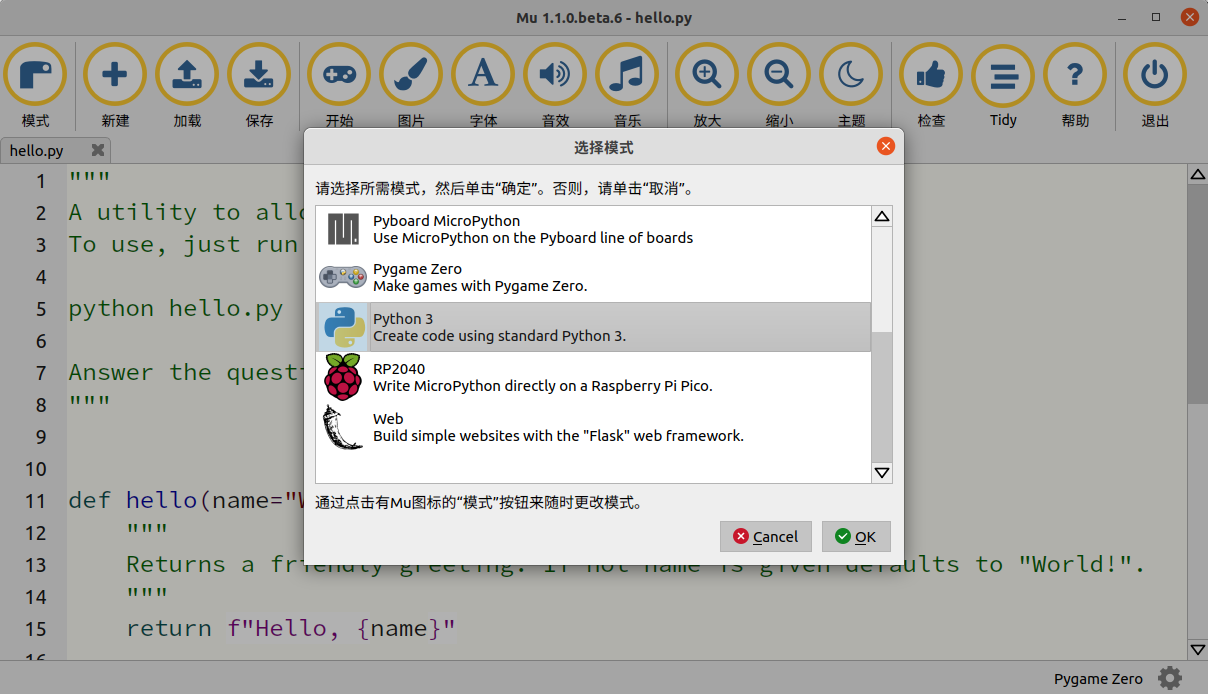
Education is a right, not a privilege.
It means that access to education should be as easy as possible given the different and diverse circumstances of learners.
The lingua franca of coding is English, and most programming languages (Python included) use English for its keywords (if... else, for ... in ... and while ... for instance). Most programming tutorials, tools and resources are written in English. But what if English is an additional language for you, or, especially if you’re an absolute beginner, you don’t know English at all?
Clearly, you’ll face challenges learning Python.
This is where translating Mu comes into play. We care very deeply that learners are able to take their first steps with Python in a tool that works in their language. We try very hard to meet learners where they are, and that includes their native language and being culturally sensitive through our user interface.
If you have any doubt of the importance of this sort of thing, here’s a wonderful video of some young Chinese students saying thank you being able to learn Python in Mu…
Thanks to the remarkable work of both Vasco and Tiago, our translation strings have been updated again and include all the new written elements of our user interface that have not yet been translated (i.e. those added during the development of version 1.1). Existing translations that require updates can be found in the locale directory and, if you’re looking for an example of the sorts of update we’re looking for, you can’t go far wrong looking at Vasco’s update of the Portuese translation.
If you want to add a translation for a new language, you should use the following convenience commands now built into our Makefile:
make translate_begin LANG=xx_XX - create/update a mu.po file for translation.
make translate_done LANG=xx_XX - compile translation strings in mu.po to mu.mo file.
make translate_test LANG=xx_XX - run translate_done and launch Mu in the given LANG.
If you’re looking for a fun way to contribute to Mu, this is it. We’re a friendly team and you can ask questions via our Gitter channel or via a pull request on GitHub.
This is the last work needed in our codebase for us to release version 1.1.
We look forward to your contributions and thank you in advance.
:-)
from Planet Python
via read more
No comments:
Post a Comment